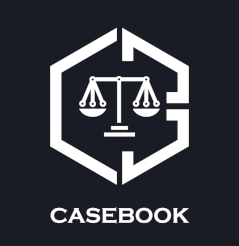
Casebook traditionally
Casebooks are fundamentally, a source of information to clarify certain laws and situations during education for students. Casebooks aren’t used as references for teachers, but are teaching devices. By teaching devices, I mean, the aids teachers use to make sure that students’ learning is enhanced and their skills are polished precisely to ready them up for the real-world. Casebook is predominantly used in law schools and that contains specific excerpts of particular cases to show the applications of laws to students. The casebook method was introduced in the United States and was considered to be the most effective way of learning laws (by reading on real life cases), especially for tax and commercial law.
The modern Casebook AI has been designed to similarly aid the lawyer. We aren’t here to replace the lawyer. Infact, the Casebook AI will provide facilities that will make things improbable, seem more possible. For example, in a way how traditional casebooks are designed to inform students about how court-rooms are to be dealt with, a lot of supporting or background information can be filtered out. The environment, the personalities involved in the case etc etc. With the help of Intelli-Search, with the help of our unsupervised and supervised machine learning, lawyers can be assured that no important details will be missed. Details that could’ve been missed out on, if things were to be done manually. Our algorithms are specifically designed to make the lawyer stand out and to have access to ‘THAT’ piece of evidence that could change the course of the case. Similarly, how casebooks are traditionally used to make sure lawyers are aware of twists and turns, the casebook AI does the same. With Intelli-Contract, lawyers can instantaneously spot anomalies across the data set.
AI in law firms is not just a commodity for the future. It’s here. AI and law didn’t seem like a combination which lawyers will be able to take up, considering the low adoption rates in the industry and the reluctance to deviate from the status quo.
Similar to how traditional casebooks help in the identification of patterns during case hearings, court-room arguments and litigation, casebook serves the same purpose too. With our robust machine learning capabilities, using 3D visualizations, Casebook provides a user-friendly dashboard that displays all the needed information. These visualizations can help lawyers observe patterns, regularities and irregularities also.
As time moves on, the need for artificial intelligence and law, to combine has never been greater. Post covid especially, firms have been working remotely with masses of data at their disposal. Manually, it poses an unsurmountable challenge to stay up to date with fellow lawyers in the firm and to deal with such huge amounts of documentation. Hence, Casebook allows lawyers to read up on cases efficiently and effectively; clients of lawyers using Casebook will always be satisfied as they can be assured nothing was missed out on. Litigators will always be prepared and ahead of their counterparts whilst presenting their arguments as they will have access to the most up to date technology available in the industry.
Legal AI companies are still small in numbers. However, companies are starting to adopt this as they have observed the rewards they can possibly reap. Casebook will save a considerable amount of time for lawyers in the industry today as documentation and clauses become more and more complex. A bit like the traditional casebook, the Casebook AI is specialized and one knows what to expect from it. Efficiency and effectiveness.
Casebook

Casebooks allow students to alter their perspective and to mold it according to how a lawyer is supposed to approach a situation. However, casebooks are used as introductory books for students and they aren’t as clear and well laid out. Most law student’s study from casebooks during their degrees in Pakistan.
It’s necessary for students to be studying casebook’s as it helps them get up to speed, a bit like the Casebook AI. The Casebook AI in which, we use Intelli-Contract to write up clauses and design contracts or go through documentation to identify irregularities. For students, it’s important to realize where cases take turns and the arguments that are presented in courts. It’s a way for upcoming lawyers to familiarize themselves with what they can expect in court-rooms and how the situations that arise can be dealt with.
